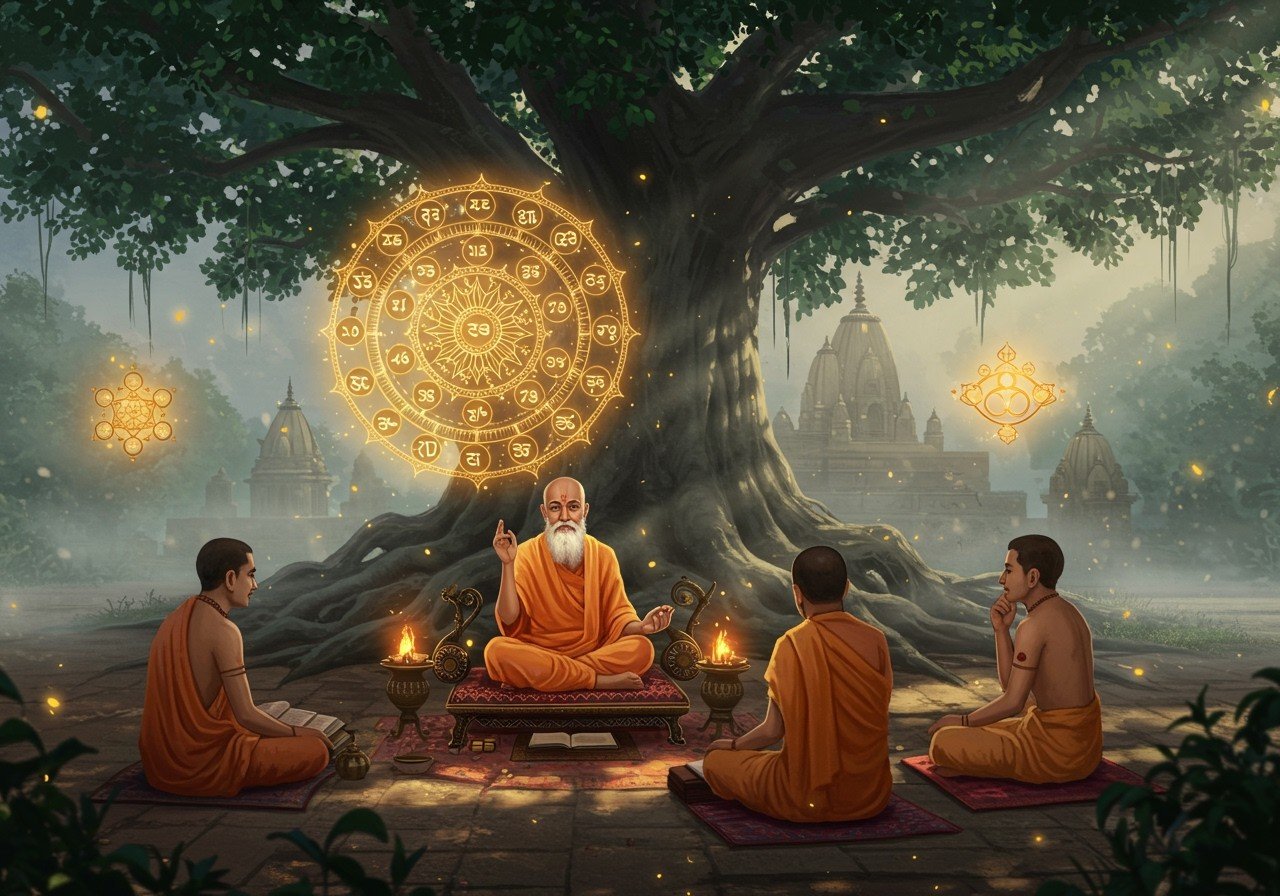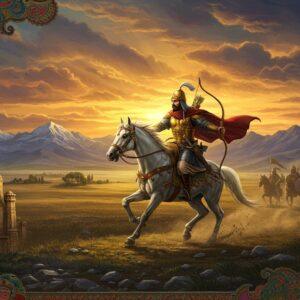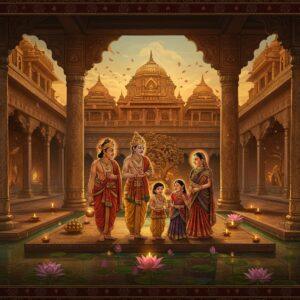
In the rich tapestry of Indian philosophy, the Nyaya Sutras stand as a cornerstone of Hindu thought. Written by the sage Gautama, these ancient texts delve into logical reasoning and epistemology. They are part of the six classical schools of Hindu philosophy. The Nyaya Sutras continue to influence modern Hinduism and offer insights into truth and knowledge. For those seeking a deeper understanding of Hindu rituals and practices, explore our collection of Hindu Symbols Explained.
Origins and Historical Context of Nyaya Sutras
The Nyaya Sutras trace back to the sage Gautama, composed around the 2nd century BCE. They form the basis of the Nyaya school, a key classical Hindu philosophy. Ancient India was a hub of philosophical debates and scholarly discussions. The Nyaya Sutras offered a structured approach to logic and epistemology. Their influence extends to other Indian philosophical systems. Understanding the roots of these sutras helps appreciate their role in shaping Hindu thought. They provide clarity and structure in philosophical inquiry, crucial for the development of logic. The context of their origin highlights the intellectual vibrancy of ancient India. The Nyaya Sutras remain relevant, guiding contemporary discussions on logic and knowledge. Delve deeper into Hindu philosophy with our insightful blog post Hindu Philosophy Explained: A Beginner’s Guide.
Core Concepts of Nyaya Philosophy
The Nyaya Sutras, a cornerstone of Hindu philosophy, offer a unique lens through which we can understand the world. At the heart of Nyaya philosophy is epistemology, the study of knowledge. It highlights four pramanas, or means of acquiring knowledge: perception, inference, comparison, and testimony.
-
Perception (Pratyakṣa): This involves directly observing the world through our senses. It’s considered the most immediate and foundational way of knowing. For example, seeing a vibrant flower or feeling the warmth of the sun are acts of perception.
-
Inference (Anumāṇa): This involves drawing conclusions based on reasoning and evidence. It’s a step beyond direct observation, using logic to understand what is not immediately apparent. For instance, seeing smoke and inferring the presence of fire is an example of inference.
-
Comparison (Upamāna): This involves understanding something new by comparing it to something already known. It uses analogy and similarity to expand our understanding. Learning about a new exotic fruit by comparing it to a familiar apple is an act of comparison.
-
Testimony (Śabda): This involves accepting knowledge from reliable sources or experts. It recognizes the value of learning from others, especially those with established authority. Trusting a doctor’s diagnosis or learning from a spiritual teacher are instances of relying on testimony.
Nyaya philosophy also emphasizes logic and reasoning. It posits that ignorance is the root of suffering, while true understanding leads to enlightenment. This resonates with some Buddhist teachings, yet Nyaya distinctly affirms the existence of a soul (atman) and self, a key difference from Buddhist doctrines. If you’re interested in learning more about self-discovery within Hinduism, our guide on Connecting With Your Inner Self offers valuable insights.
Nyaya Sutras and Their Influence on Hinduism
Nyaya’s emphasis on logic has profoundly shaped Hindu thought. It provides tools for rational inquiry and debate, influencing other schools of thought like Vedanta and Mimamsa. The structured approach of Nyaya encourages open discussions on metaphysics and ethics within Hinduism. This logical framework supports the belief that liberation (moksha) is achieved through understanding the true nature of reality.
Gautama’s Contribution to Hindu Philosophy
Sage Gautama’s work established the foundation for systematic philosophy within Hinduism. His rigorous approach to logical reasoning paved the way for later philosophers to explore complex ideas with precision. Gautama’s methodology continues to be influential, offering valuable insights into how we understand and analyze beliefs and knowledge. Embark on a spiritual journey with our Siddhatek Pilgrimage guide and deepen your connection with Hindu traditions.
Nyaya Sutras as an Ancient Treatise
The Nyaya Sutras are more than just ancient texts; they are a guide to structured thinking. Composed of concise statements, or sutras, they encapsulate complex philosophical concepts studied for generations. Commentators like Vatsyayana have elaborated on these ideas, making them more accessible to contemporary readers.
Relevance of Nyaya Philosophy in Modern Times
In our rapidly changing world, the Nyaya Sutras offer timeless wisdom. Their methodical approach to logic and debate cultivates critical thinking and intellectual rigor. These principles are applicable to scientific inquiry, ethical reasoning, and personal growth. By integrating Nyaya’s insights, we can navigate the complexities of modern life with clarity and understanding.
How Poojn.in Supports Your Nyaya Sutra Studies and Rituals
Poojn.in offers a curated selection of items to enhance your study and practice of Nyaya Sutras within Hindu philosophy. The Nyaya system emphasizes appropriate seating and a focused mind during philosophical contemplation and rituals. For effective meditation and study, we offer:
-
Kusha Asan (ਕੁਸ਼ ਆਸਨ): A traditional grass mat that helps maintain ritual purity, providing a sacred space for study and reflection. Enhance your practice with our authentic Kusha Asans, available at Pooja Samagri.
-
Darbha Aasan (દર્ભ આસન): Sacred grass seating essential for philosophical studies, promoting a connection with tradition. Explore our collection of Darbha Aasans in various regional styles at Pooja Samagri.
-
Pure Copper Water Vessels: Used for ritual cleansing, these vessels symbolize purity and enhance the sanctity of your practices. Discover our range of copper vessels for all your ritual needs at Brands/Poojn.
-
Brass Oil Lamps: These lamps provide a focused light source for meditation, aiding concentration and creating a serene atmosphere. Illuminate your space with our beautifully crafted brass oil lamps, available at Pooja Samagri.
These items are available in regional variations to align with specific traditions, including: Kusha Aasana (କୁଶ ଆସନ) – Odia style, Kusha Pat (কুশ পত) – Assamese variation, and Darbha Aasan (દર્ભ આસન) – Gujarati version. Discover more products for your rituals at Clay Items and Dashakarma Items.
Poojn.in guarantees the authenticity and proper sourcing of each product. We ensure all ritual items meet traditional standards while providing convenient home delivery across India. Browse our extensive range of products at Brands, Brands/Mangalam, Brands/Liberty, and Brands/Cycle.
Our customer service team can guide you in selecting the right items based on your regional customs and specific requirements for Nyaya Sutra studies. All products are carefully packaged to preserve their sacred nature during transit. For convenient shopping, visit our Poojn Stores or explore store-only deals at Store Only.
Visit Poojn.in or contact our support team to order these essential items for your philosophical and ritual needs. We also have curated Pooja Kits to simplify your ritual preparations.
Conclusion: Embracing Nyaya’s Timeless Wisdom
The Nyaya Sutras, with their profound insights and logical framework, remain a source of wisdom in our lives. They encourage us to perceive the world with reason and understanding. By exploring Nyaya’s core concepts, we gain invaluable tools for critical thinking and meaningful dialogue. These ancient teachings continue to shape Hindu philosophy, guiding us in our pursuit of knowledge and truth. Embracing Nyaya’s principles is to honor a rich tradition that empowers us to seek clarity and enlightenment in a complex world.
FAQs on Nyaya Sutras & Hinduism
What are the Nyaya Sutras? The Nyaya Sutras are ancient Indian texts forming the foundation of the Nyaya school of Hindu philosophy. They emphasize logic, reasoning, and epistemology, providing a framework for philosophical understanding and debate.
Who authored the Nyaya Sutras? The sage Gautama, also known as Gotama, is credited with composing the Nyaya Sutras and establishing the Nyaya school, which prioritizes logical analysis and debate.
How do the Nyaya Sutras relate to Hinduism? As one of the six orthodox schools of Hindu philosophy, the Nyaya Sutras explore knowledge, perception, and inference, shaping Hindu philosophical thought.
What is the main focus of the Nyaya Sutras? Logical reasoning and acquiring valid knowledge are central to the Nyaya Sutras. They delineate various forms of argumentation and debate, striving to establish truth through logical analysis.
Are the Nyaya Sutras an ancient treatise? Yes, the Nyaya Sutras are an ancient philosophical treatise, among the earliest works in Indian philosophy, providing a thorough exploration of logic and epistemology.
Why are the Nyaya Sutras important in Indian philosophy? The Nyaya Sutras’ significance lies in their systematic approach to logic and reasoning, offering vital tools for critical thinking and debate within Hindu philosophical inquiry.
Can the Nyaya Sutras be studied today? Absolutely. The Nyaya Sutras remain a valuable resource for anyone interested in Hindu philosophy and the art of logical reasoning, offering insights into ancient Indian thought and philosophical development.


